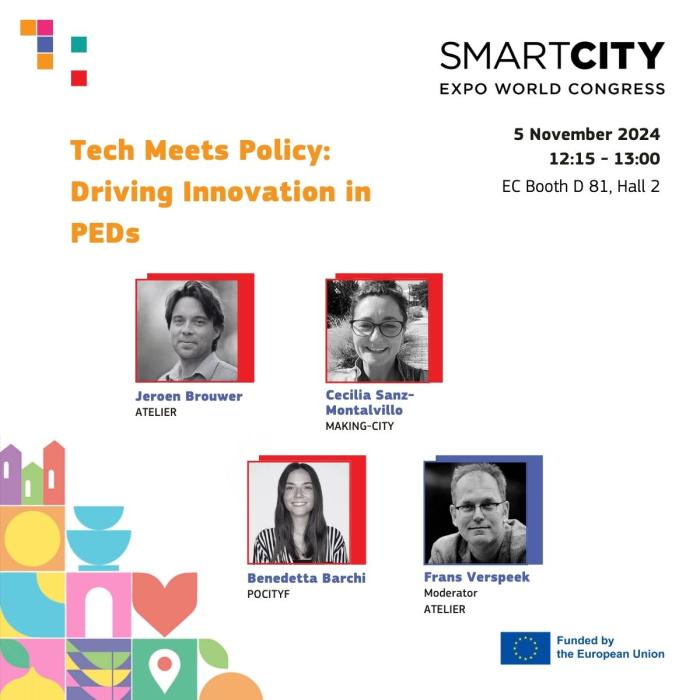
The session Tech Meets Policy: Driving Innovation in PEDs brought together representatives from the ATELIER, MAKING-CITY, and POCITYF projects to explore how technology and policy can align to drive the development of Positive Energy Districts (PEDs) while also addressing regulatory barriers. Hosted by the Scalable Cities Secretariat, the session featured dynamic presentations followed by an interactive Q&A, offering participants valuable insights into the challenges and opportunities in PED development and implementation.
Jeroen Brouwer, Senior Project Manager at TNO, introduced the ATELIER project and in particular, the Innovation Ateliers, a key tool designed to help cities navigate the complexities of PED implementation. These structured frameworks aim to engage policymakers and stakeholders early in the process, providing the support needed to address challenges as they arise. ATELIER’s experience offers valuable lessons for other cities looking to scale up their PED projects, as Jeroen pointed out "Our goal is to pave the way for other cities by sharing practical insights and fostering knowledge exchange”.
Cecilia Sanz-Montalvillo, Project Coordinator at CARTIF, shared key insights from the MAKING-CITY project, which initially began by testing the Positive Energy District concept in two lighthouse cities—Oulu and Groningen— and was later replicated in six follower cities. Several innovative solutions were highlighted, including the solar footpath in Groningen and the installation of solar heat pumps in Oulu. The MAKING-CITY Toolkit was also introduced, a valuable resource designed to help cities replicate successful PED models.
Finally, Benedetta Barchi, Project Manager at RINA Consulting, presented POCITYF’S work in Évora, a heritage city in Portugal where regulatory constraints present significant challenges. While the project has successfully implemented some solar solutions, only two out of eight planned installations have been approved due to the regulations in place to protect the heritage site. Benedetta explained that it is important to work with the municipal authorities “Close collaboration with municipal authorities is key to moving projects forward, especially in heritage areas where approvals can be complex”.
This session underscored the necessity for synergy between technology and policy as a driving force behind the successful implementation and scaling of PEDs. The shared insights and collaborative dialogue not only highlighted the challenges in implementing PEDs but also set the stage for discussions on how to replicate these innovative solutions across Europe, driving us closer to the goal of widespread climate-neutral urban solutions.
